Maybe, at first, you laugh out loud because it caught you off guard. Or maybe, you’re shocked because you don’t use that kind of language in your home and you want it to stop immediately! Whatever the reason, if you’re tired of hearing potty talk, inappropriate language, swearing, or unwanted phrases from your kids this list will help you explore why your child uses bad words and gives you plenty of optional responses.
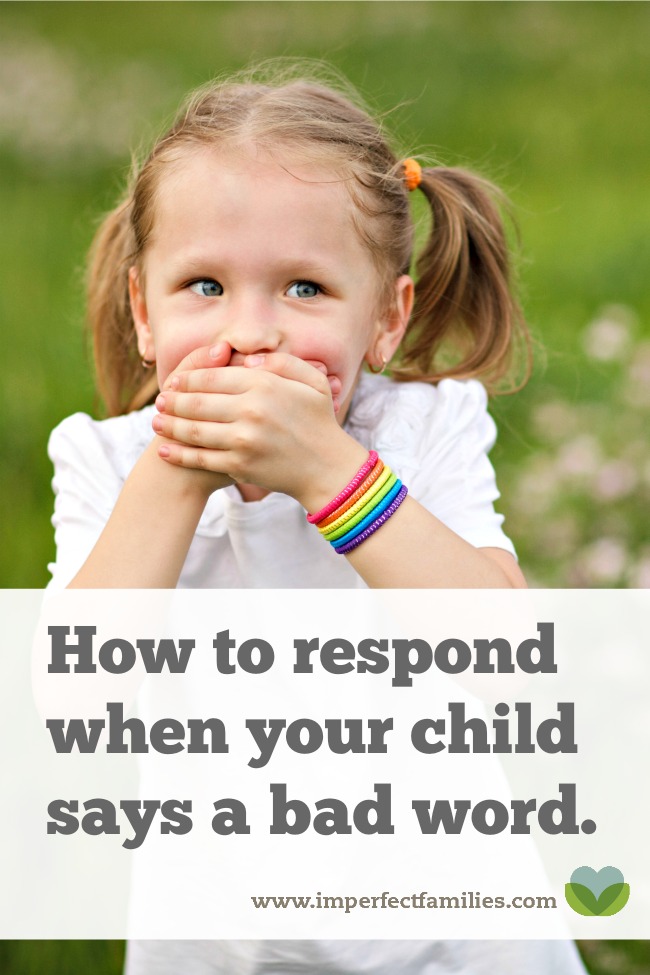
“You’re a poopy head”
“I’m not a poopy head. You’re a poopy head! Poopy-head! Poopy-head!”
“Oh yeah? Well, you’re a…”
Swiftly moving into the room, you put a stop to the potty talk. “We don’t use that kind of language in this house. What’s gotten into you two?”
Then, launching into a lecture, you reemphasize the importance of kind words. And do your best to convince them not to use potty talk again.
Feeling satisfied, you go on with your day.
Only, it’s not over.
At dinner, your child declares, “This is a poopy dinner.”
What?!
There’s got to be a better way to deal with these bad, inappropriate, or unwanted words.
Why your child uses bad words (and how to respond).
At first, hearing these words from your sweet, little innocent child’s mouth may come as quite a shock.
As your child grows, meets new friends, attends school, clubs, and activities, his vocabulary may expand even more.
You may feel a sense of panic, as you try to eliminate these unsavory phrases from your household.
Instead of rushing in, lecturing, punishing and yelling…
Let’s slow down.
Take a second to look beyond the word or phrase, to see what may be hiding under your child’s new vocab.
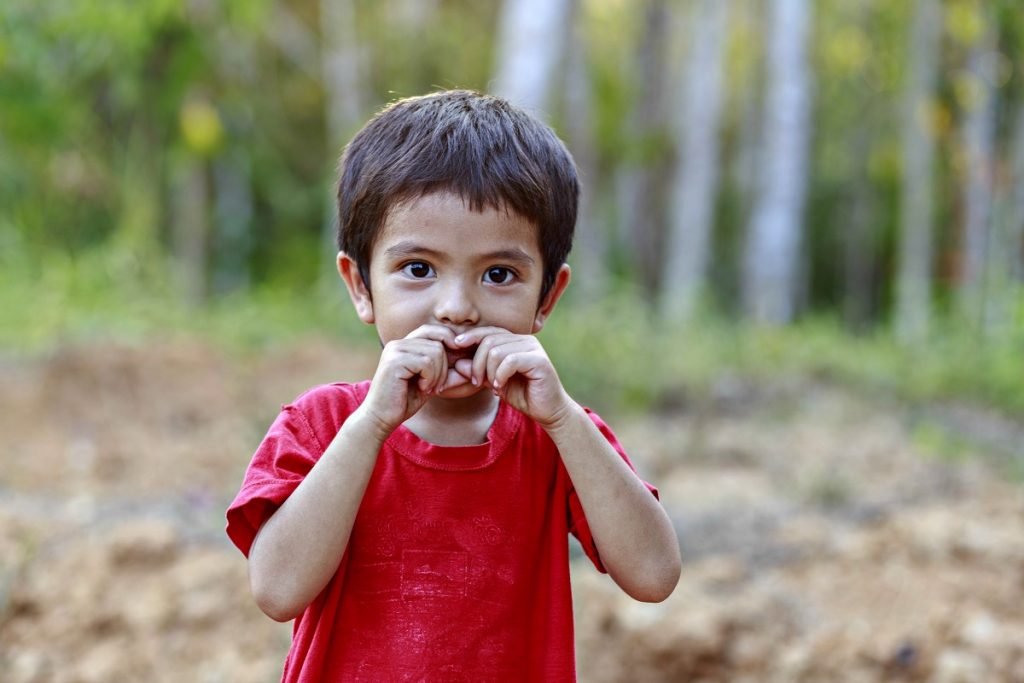
It’s just fun.
Sometimes, kids hear a word and just want to try it out. They may know the word is wrong – or even forbidden – in your home. They don’t intend to add it to their everyday use, they just want to hear how it sounds coming out of their own mouth. They may repeat it over and over. (You may never even hear these “practice sessions.” One parent confessed that she used to say all of the swear words she knew while walking home from school. She never said them at home.)
If you do hear them in casual conversation watch your reaction. Evaluate the situation – did your child accidentally slip up? Did they realize their mistake and quickly try to fix it? If so, your child may only need a quick glance or a short comment from you.
How to respond:
- Let it go. Ignore it or give it very little response.
- “Did you hear a new word? Do you know what it means?”
- “Wow, that’s a new word. Want to say it again?”
- “Wow, that’s a new word. I know it’s fun to try new words sometimes, but we don’t say that in our house because someone’s feelings might get hurt. ”
Attention seeking.
Let’s say, you hear a bad or unwanted word and you…um…overreact a little (or a lot). Your reaction led to a huge power struggle between you and your child. You tried to get them to stop saying the word and they continued saying it – louder and with even more energy.
Of course, you didn’t intend for this to turn into a battle. Unfortunately, now when your child is longing for attention, they know this word or phrase will stop you in your tracks. Even if the attention is negative, in this moment, your child wants connection more than anything. The goal in this scenario is to give them the attention they need before they ask for it. And, in the moment, respond with connection rather than addressing the word itself. Teaching can come later, but the relationship needs to come first.
How to respond:
- Give a high-energy response (depending on your child’s likes/dislikes) – an impromptu game of tag, wrestling, being silly, giving a big hug, etc.
- “Uh oh! There’s that word again! Sounds like you’d like my attention.”
- “I bet you’d like to have a turn to tell me about your day, huh?”
- “Come here, let’s snuggle. Remember, you can also say, ‘mom, I need you for a minute.’ or ‘mom, I need a hug.’”
Big, big feelings.
Even the smallest thing can lead to big feelings inside. With a limited vocabulary and inability to connect thoughts to feelings, children may grab for the simplest word they know to express how they feel inside. When you respond to the inappropriate word, you often miss the underlying feeling. The first step toward removing these words from use is to create a safe place for them to express big feelings.
Be empathetic to a variety of emotions. Imagine how your child feels, and then put these feelings into words they can repeat. Talk about different emotions, how they feel inside their brain and body, and connecting them to everyday scenarios. With time, and your support, your child’s vocabulary will expand and they will have other ways to express these big feelings to you.
How to respond:
- “I can tell you’re upset about the dinner I prepared. I know it’s not your favorite.”
- “It sounds like you’d like your sister to move away from your legos.”
- “It’s sad when Grandma has to go home. I miss her so much after she’s gone. I bet you do too.”
- “You disagree with my decision. And that’s ok. We can still be kind, even if we disagree.”
Modeling you.
Unfortunately, your child may pick up on new words because he hears them from you. You don’t intend for him to repeat these words – at least not in public – but they’re already part of his vocabulary.
If you would like to eliminate these words from your house, it has to start with you. Acknowledge your own use of the word, talk about what you were feeling or thinking inside, offer an alternative phrasing, or give yourself a do-over (where you try it again, without the word). If you hear the phrase from your child, don’t panic. Simply follow the same steps, helping him gain insight into how he feels and finding a new way to communicate it.
How to respond:
- “Wow. I was really mad at that lady on the phone. I used some hurtful words. I wish I would have told her that I was feeling frustrated instead.”
- “Oops! I said it again. What was our new word? Oh yeah, ‘stuffed peppers with cheese.’ Let me try it again!”
- “You’re right. I said it again. Sometimes I forget. I’m sorry.”
- “We’re working hard to talk about our feelings instead of using that word, right?”
Your response matters.
For most kids, new words come and go. They try another word or phrase, lose interest, and move on to the next one.
It’s fine to be concerned, especially if your child uses a word often, but make sure to check your triggers first.
Think about:
Why does this bother me so much?
What feelings come up when I hear this word/phrase?
What memories are attached to this word?
What’s my biggest fear when I hear this word/phrase?
What does my child’s use of this word mean about me as a parent?
Sometimes, our own reaction is much bigger than the problem. When we stop and understand our triggers, we can downsize our response, look beyond the unwanted word or phrase, and find a better solution.
- You may decide to have a discussion about how the word makes you feel, or how others may perceive it.
- You may explore where they’re hearing this language.
- You may talk about your family values and how the phrase contradicts.
- You may decide to learn more about how your child feels when they hear other people saying that word.
Open up the conversation, rather than looking for ways to force the unwanted words out.
“This dinner is poopy, eh?” you respond with humor and a smile. “I just love serving poopy dinners. In fact, from now on, every Monday is going to be ‘poopy dinner night.’ Hooray!”
The wind is out of the “poopy” sail.
Now you can direct the conversation to more civilized conversations.
Like who ate a glue stick at preschool.
How can I help?
Making changes to the communication in your home is not always easy. Sometimes, it helps to have an outside perspective to help you see the things that need to change and encourage you along the way. If you’re looking for this type of support, Parent Coaching may be a great fit for you. Click here to learn more about Parent Coaching.
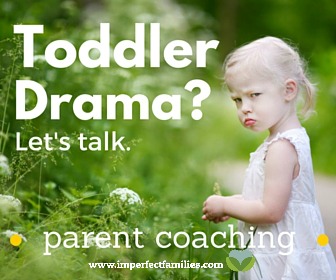

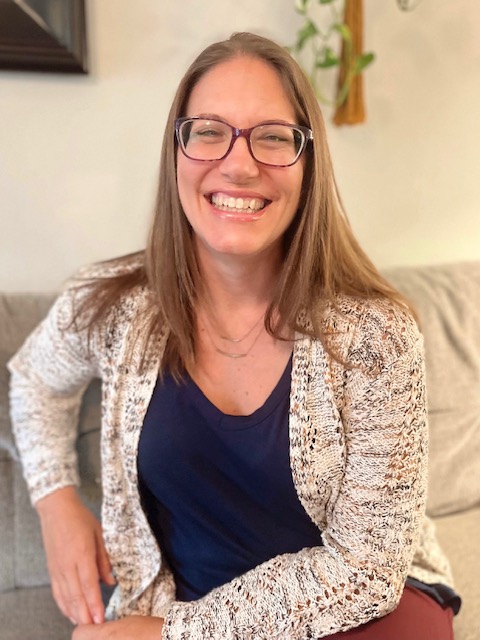
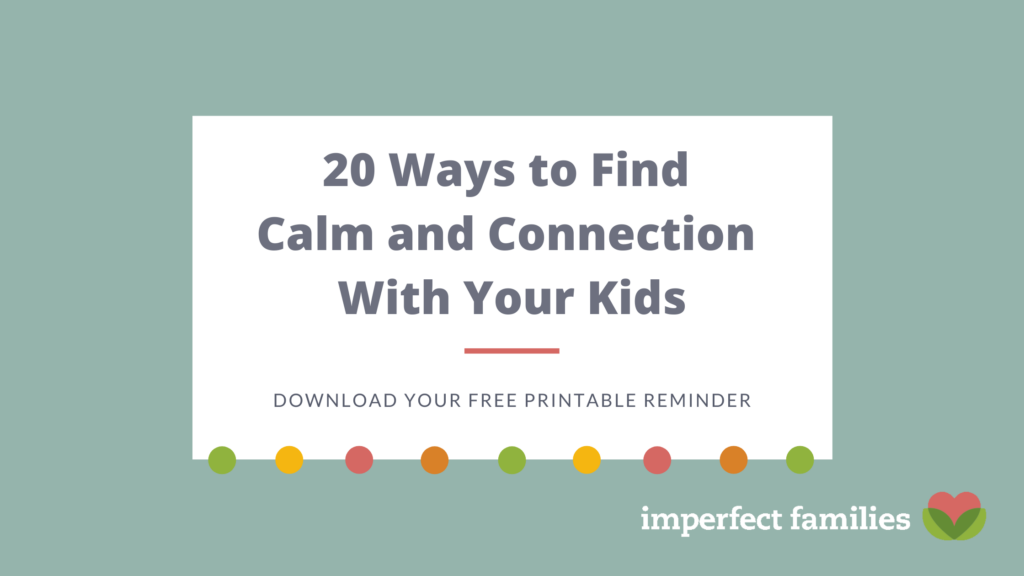
Comments have been turned off to retain the privacy of all families. If you have a question or comment on the topic, you're always welcome to contact me.